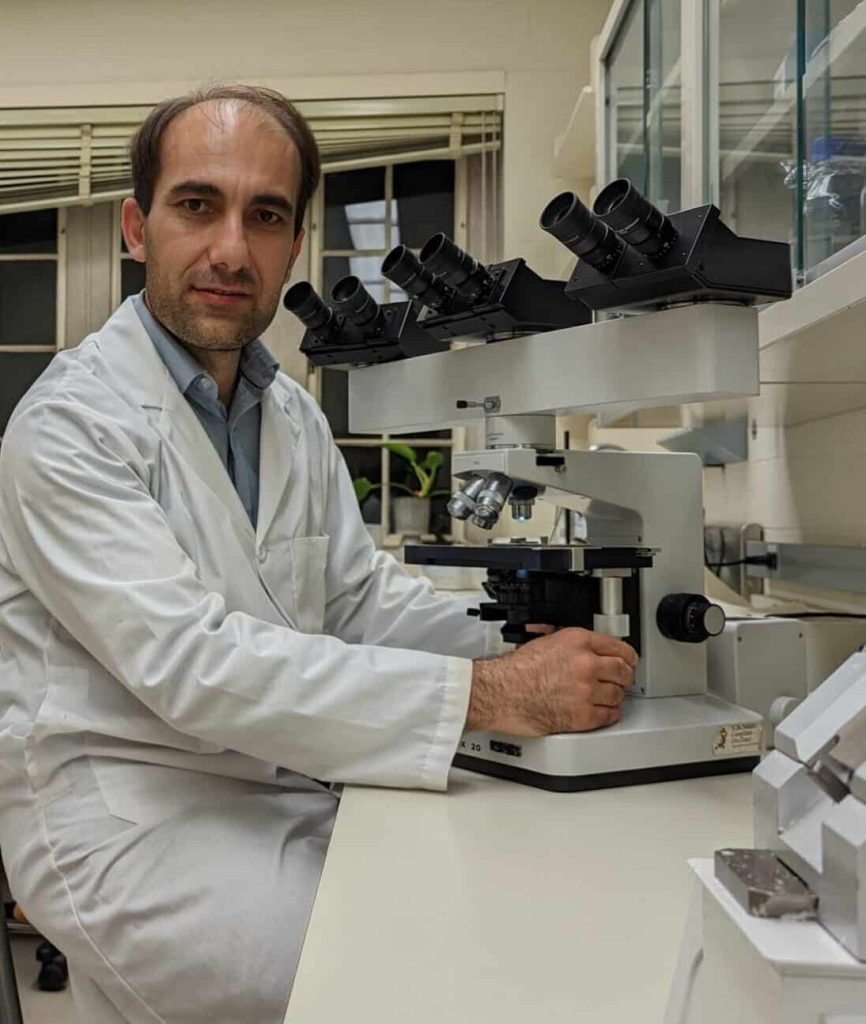- Please tell us a little bit about yourself (i.e. name, current degree program/department, supervisor/lab, previous education/experience etc.).
My name is Rober Abdo, and I am a first-year Ph.D. student in the Department of Pathology and Laboratory Medicine at Western University. Previous to this, I obtained a Doctor of Medicine degree (MD) and a Masters of Science (MSc) from the University of Aleppo in Syria, and an MSc in Anatomy & Cell Biology from Western University.
- Why is the TBCRU Studentship Award important to you, and how does it advance your research?
The TBCRU Studentship Program paves the path for researchers like me to add hope to breast cancer patients and their relatives. In addition, it facilitates the application of my knowledge, expertise, and skills in tackling the problem of breast cancer brain metastasis that can result in a prognosis for patients.
- What is the objective of your research project and what problem(s) you hope to solve?
My research aims to understand the specific characteristics of breast cancers that can metastasize and grow in the brain. I hope to solve the challenge of detecting metastatic breast cancer at its early stages and understand how brain metastasis could be better treated and/or prevented in the future.
- In a few lines, please describe your research project.
Breast cancer is one of the most common cancers that spread to the brain. Unfortunately, most breast cancer patients with brain metastasis are diagnosed late and with serious complications. In addition, the overall understanding of the process of brain metastasis is superficial, thus limiting the ability for early diagnosis and treatment. In our study, we are examining tissue samples from breast cancer patients to identify changes in their cancer cells that allow them to spread to the brain and develop into brain metastases. We are using cutting-edge techniques known as NanoString Digital Spatial Profiling and mass spectrometry to identify the changes responsible for allowing breast cancer cells to flourish in the brain microenvironment. Our findings in human samples will be further investigated in experimental mouse models of breast cancer brain metastasis.
- Have there been any changes to or any advancements in your research since your project began?
So far in the first year of the project, we have generated a molecular map of breast cancer metastasizing to the brain and waiting to acquire the data from NanoString. We have also added an aim for our study that includes studying breast cancer brain metastasis in a mouse model, where we will be able to further test and validate the findings from the human sample analysis
- Have you had an opportunity to present (or publish) your research to your peers or the broader research community? Was it at a national or international meeting or in some other way?
Unfortunately, due to the pandemic, we have not had the opportunity to present this most recent research. However, we aim to submit our recent work to a journal for publication by the end of 2022.
- If you received feedback following your presentation how has it helped you and your research?
Our research quality grows with ongoing feedback received on publications and presentations along the way. It has helped me consider more efficient approaches to address a specific research aim or analyze the data differently.
- How will your research be applied in the clinic or in a real-world setting? How will patients benefit from the results of your work?
After we validate our findings in a mouse model (pre-clinical studies), we aim to eventually translate the targets into early stage clinical trials to detect metastatic breast cancer earlier and treat breast cancer patients with brain metastasis.
- What are your hobbies? What are you currently reading, watching or listening to outside of the lab?
I like spending time with my children, playing soccer, walking, and reading. My last read was the book “The Chatter.” In addition, I have recently enjoyed watched Japanese animation movies with my children.




